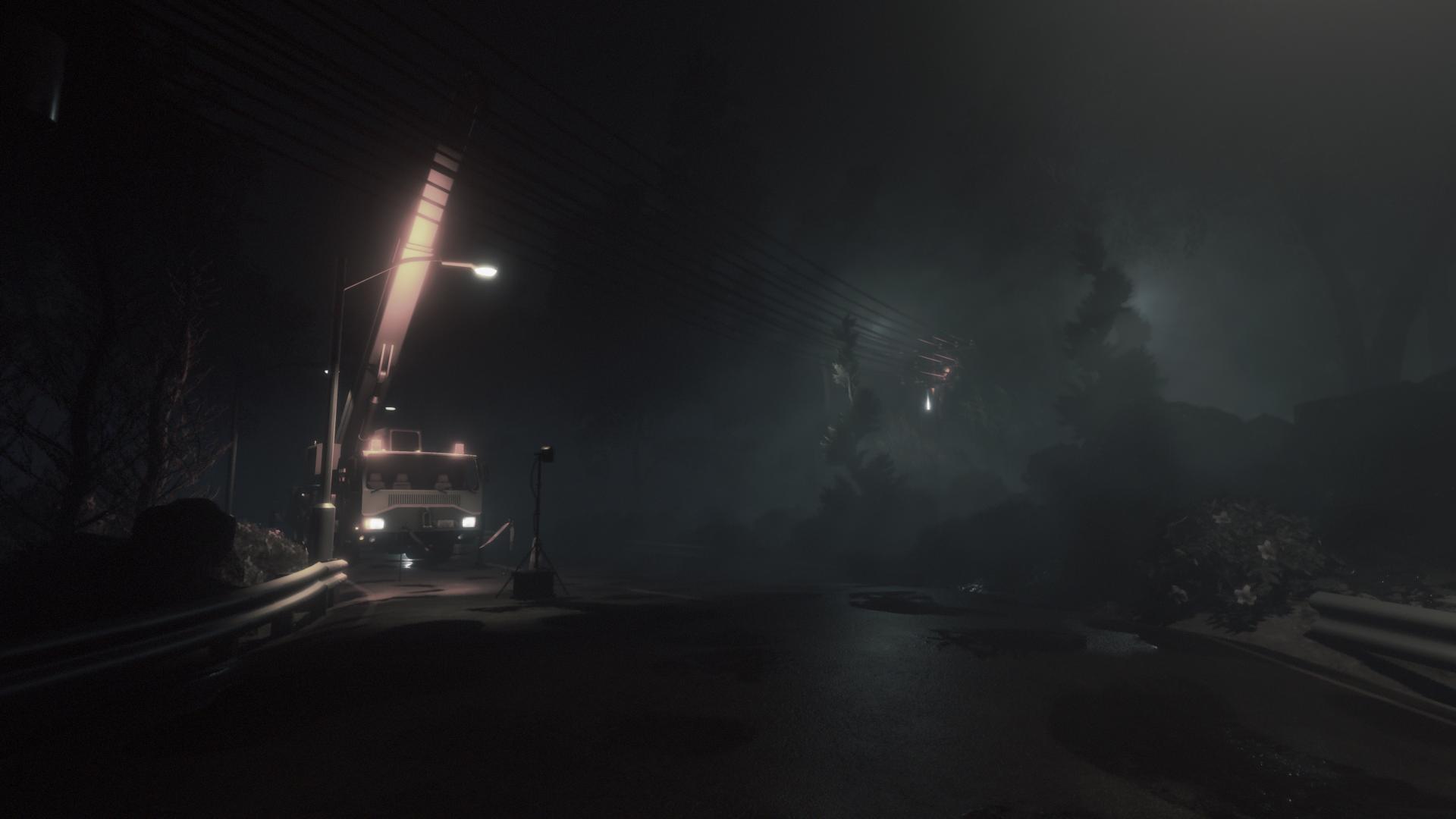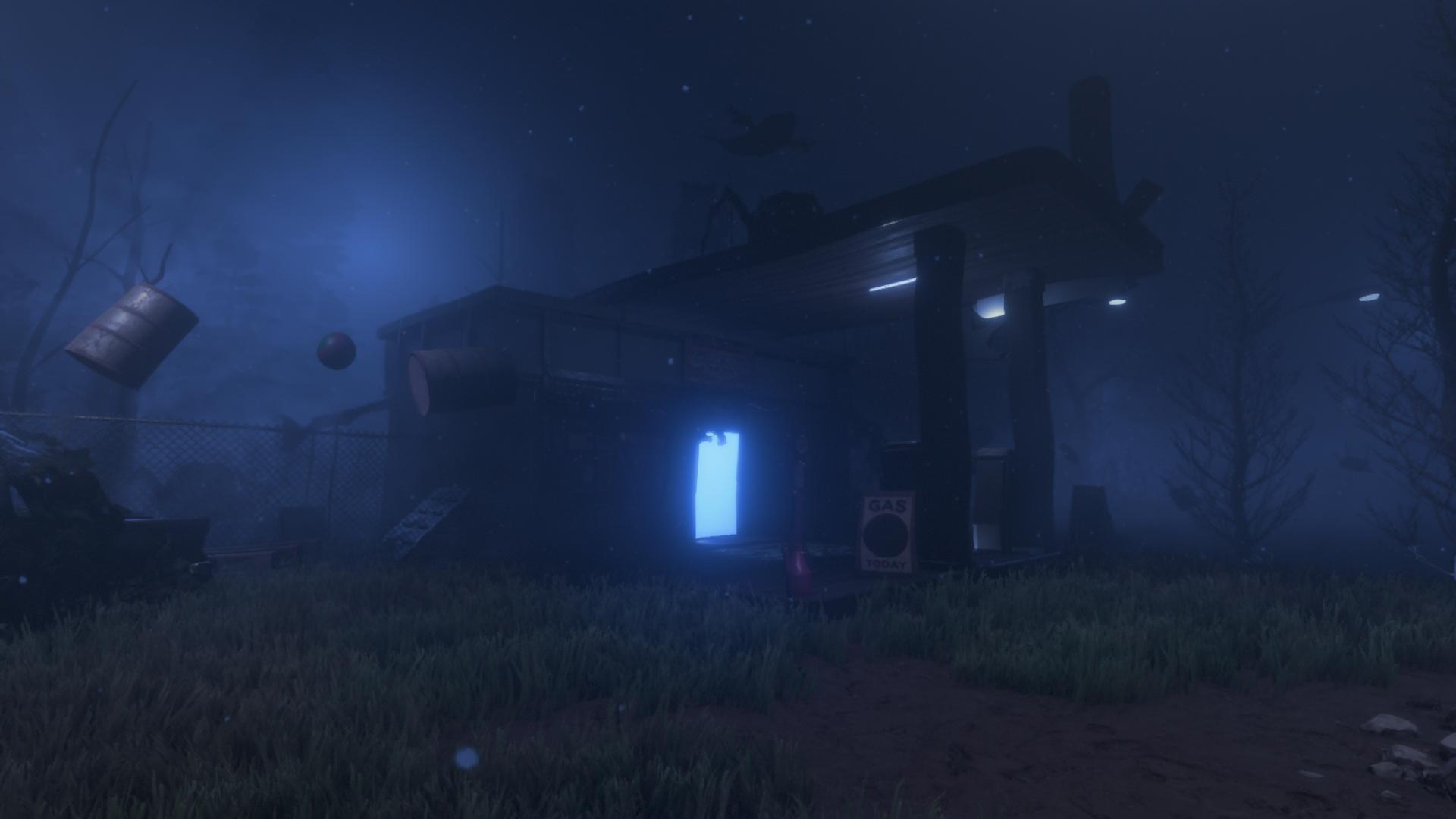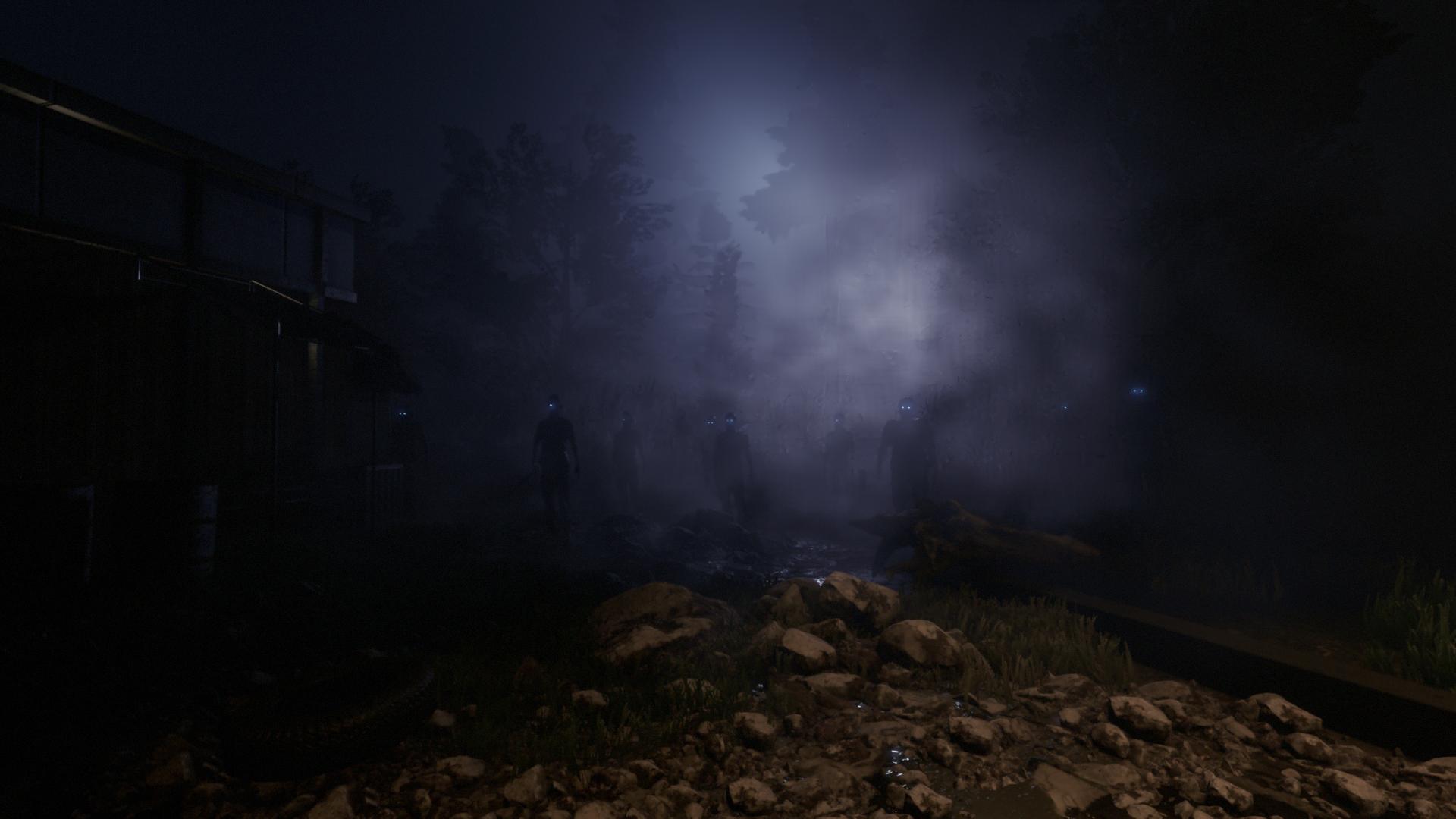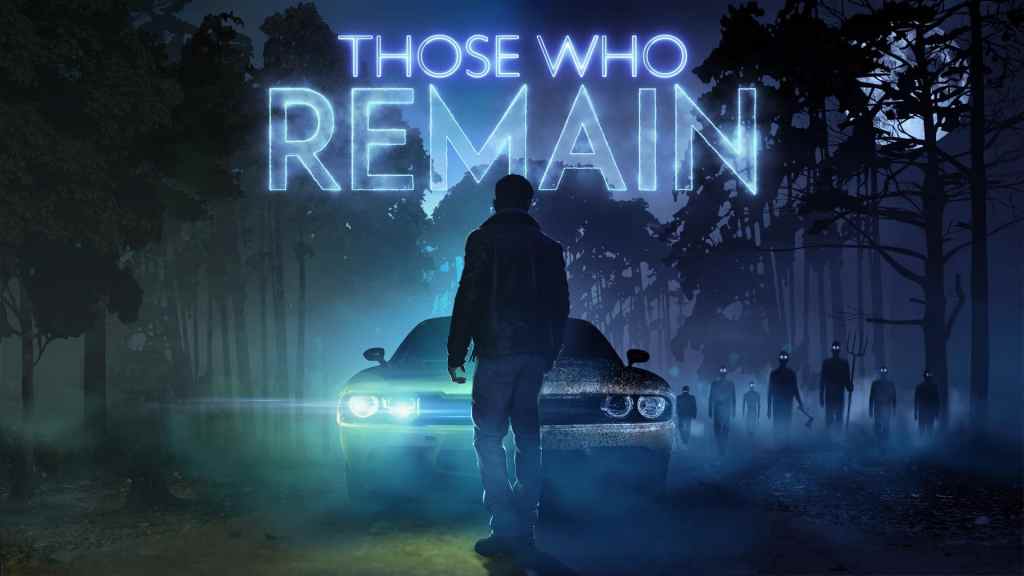At first glance, Edward isn’t the most likeable person. In a gruff, unemotional voice reminiscent of a gumshoe detective telling you about his latest case, Edward tells us about how his wife deserved better. He hints towards a tragedy that may have involved his young daughter. With a bottle of alcohol in one hand and a gun in the other, he mulls over his future. Then he gets a message. It summons him to meet Diane at the Golden Oak Motel in Dormont so they can continue their secret affair.
On the way there, a flash of guilt convinces him to end their affair that night. The problem is when he gets to the motel, Diane is missing. Her bags are still in the room. The shower’s still running. In fact, the entire motel is eerily quiet, apart from one person… the person that steals Edward’s car from the car park. Can his night get any worse? Well, it wouldn’t be a psychological horror game if it didn’t.
Those Who Remain Review – Welcome to Dormont
The town of Dormont is deserted. Several of its residents have left town. Many others just disappeared without a trace, or were found dead in mysterious circumstances likely linked to the permanent darkness that shrouds the town. The gloom is filled with hordes of shadowy apparitions with glowing blue eyes. These vanish immediately when faced with a light source. However, they all carry very real weapons they’ll use as soon as you step too far into the darkness, resulting in instant death.
The outcome is a game that relies on its creepy atmosphere. Players must open up paths into the light to stay safe because Edward is a man who has absolutely no idea how to be resourceful. A little way into the game he finds a lighter, but then a couple of minutes later, he’s lost it. “I must have dropped it” he muses. Regardless of the deadly consequences of carelessly losing a reliable light source, he never replaces it. This is despite the abundance of wood, fire, and candles that surround him throughout the game. Dormont seemingly hasn’t heard of flashlights either.

Instead, players are forced to play a compulsive game of hide and seek with light switches as you go between empty buildings. Each building is a self-contained level where Edward clings onto the hope of finding a way out of town. He needs to sort out his own personal demons and settle the unrest in Dormont if that’s to happen. The story does have some interesting twists. Unfortunately, it starts to get old long before you’ve finished your 6-8 hour playthrough.
Each of the town’s buildings represent a key part of the story, be it the town library, police station, or a house. The problem is they all used the same interior designer. The buildings are fairly lifeless cookie-cutter copies of each other. Throughout are hidden important objects or clues to the story, helpfully highlighted in flashing neon yellow, but you start to get sick of opening hundreds of identical empty drawers and lockers trying to find the one that contains the item you need.
Getting through each building requires solving puzzles that range from the simple to the seemingly impossible. Edward has a limited move set, restricted to walking slowly, sprinting, interacting with objects, or throwing them. Because of this, most puzzles are mundane, such as weighing down stones correctly. Others I’m still not certain how to get to the answer. Without a hint system, you’re stuck with either trying to find a guide or using trial and error.

When you can’t find any more clues in your current environment, you’ll be faced with a glowing door that leads to even weirder situations. The town’s reality shifts between two dimensions, the real world and a strange fantasy world. In the latter, objects float or are turned upside down, there are otherworldly monsters patrolling the area, and paths float up and down. If there’s something you can’t find in the real world, it’ll be here. Contrary to the real world, none of these areas feel too similar and they’re the most interesting parts of the game.
Once you’ve found all of the objects and clues, you’ll either be able to leave the building or you’ll be faced with a decision. Dormont’s predicament is the result of its citizens’ actions, or inactions in some cases. Once you know what they’ve done, you need to decide whether to forgive them or whether to mete out your own form of justice. These decisions should decide which of the three story endings you get, although these are currently bugged. Despite forgiving everyone, I still got the bad ending, but the developer promises a patch for this soon.
Those Who Remain Review – The Real Issues
While Those Who Remain mostly relies on its atmosphere, there are a few jump scares. These are usually thanks to the few supernatural enemies you’ll encounter. While the town’s occasional live occupants are represented by shoddy, outdated models with shiny skin and no lip-syncing, the supernatural enemies are more varied, such as the grotesque creature with a headlight for a head. Edward can’t defend himself or distract them in any way, so you have to avoid them using stealth. There’s no real stealth mechanic, though. You’re left to clumsily hide behind furniture and hope you break the line of sight.
If you’re seen and you blunder into a corner, it’s instant death. With the game’s inconsistent checkpoint system, this could mean you get set back just a couple of minutes to the start of the section, or through the entire building to begin again. If the latter happens, you’ll need to recollect important items and solve puzzles again, but any important paperwork is already gathered and important observations are already made. It makes the more pointless deaths, like flicking the wrong light switch, extremely frustrating.

Other pointless deaths are caused by the game’s sensitivity issues. When faced with a chase sequence where I needed to remove a barricade to proceed, I couldn’t remove it quickly enough on numerous attempts. You can’t change any of the controls or movement speed. While you can increase the camera’s sensitivity, you risk motion sickness by doing so too much.
When trying to avoid the dark, it’s also really important to be clear when an area is lit and it isn’t. The game’s gamma settings have very little effect on this. When looking at one area from one direction, it appeared to be in complete darkness. Crossing the courtyard to look at the same area from a different angle instead showed it to be well lit. This uncertainty led to yet more pointless deaths.
Even the game’s sound wasn’t free from issues. Subtitles are on by default and you’ll need them. Often the game’s background sound effects drown out the conversations, or they’ll be muttered in an unintelligible voice. At other times, the sound is loud enough to wake the entire neighborhood.
All of these problems turn the game from something promising into a mediocre experience that’s less psychological horror than it is torture. There are better horror experiences out there.
Those Who Remain review code provided by publisher. Version 1.03 reviewed on a standard PlayStation 4. For more information on scoring, please see our Review Policy.
-
Interesting story
-
Players can decide their own fate through their decisions
-
Inconsistent checkpoints
-
Frustrating control, light and sound issues
-
Environments get repetitive
-
Soulless character models







